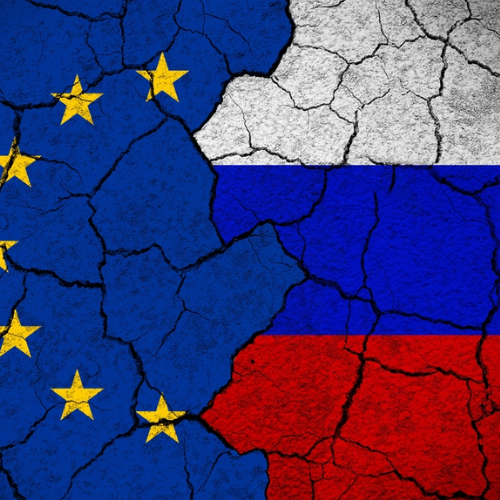European envoys are once again sitting around the table to discuss new sanctions against Russia. This time, their focus is on serious accusations that Russia has been using banned chemical weapons during its ongoing war against Ukraine.
According to EU sources, the European Commission has proposed adding 15 new names—both people and companies—to its list of sanctioned targets. These include those believed to be part of Russia’s hybrid attacks and others suspected of using dangerous chemicals on the battlefield.
The global group that watches over chemical weapons, called the Organisation for the Prohibition of Chemical Weapons (OPCW), reported last year that they found signs of tear gas being used at the frontline.
While they didn’t say exactly who was to blame, both Ukraine and the United States quickly pointed fingers at Russia. They accused Moscow of breaking international rules. Under the Chemical Weapons Convention, which many countries have agreed to follow, using tear gas or similar chemicals in war is strictly forbidden. Russia, on the other hand, has denied doing anything wrong.
As part of these talks, EU officials are also working on a much bigger plan. They are discussing what is called the 17th package of sanctions against Russia. These punishments are designed to hit Russia’s military forces and its secret shipping operations, which are believed to help keep its economy afloat during the war.
EU Launches Aggressive Crackdown: Vietnam and Turkey Named in Kremlin’s Sanctions Evasion Network
Bigger Plans Against Russia’s War Machine
Sanctions are one of the EU’s main tools to respond to countries that break international laws. In this case, European countries want to weaken Russia’s ability to continue its invasion of Ukraine, which has now dragged on for over three years. The proposed 17th package is particularly tough.
EU member states are expected to agree on adding around 140 new ships to their sanctions list. Most of these are oil tankers that form part of what experts call Russia’s “shadow fleet”—ships that help Russia move oil around the world while dodging existing sanctions.
Along with the ships, about 70 new individuals and entities—mostly businesses—are also likely to be added to the list. These are groups and people suspected of helping Russia’s military operations or supporting its illegal activities. The EU’s diplomatic service, known as the EEAS, is leading the charge when it comes to these new listings. Meanwhile, the European Commission is handling the wider, sector-based sanctions that could impact entire industries.
Interestingly, the EU is also considering targeting one of Russia’s major oil companies, Surgutneftegaz. This company was already hit by US sanctions earlier this year, as part of a wider effort to crack down on Russia’s energy exports. If the EU follows suit, it would further squeeze one of the main money sources for the Kremlin.
Scam Kingpin Sanctioned: U.S. Targets Myanmar Warlord Exploiting Victims Across Borders
Human Rights and Weapons Violations Under Review
In addition to chemical weapons concerns and military sanctions, EU officials are also discussing a separate set of measures. This third package focuses on human rights abuses. Sources say this package could add around 25 more people and groups suspected of violating human rights. These discussions are happening at the same time as the talks on chemical weapons and military-related sanctions.
Together, these three sanction packages show how the EU is ramping up pressure on Russia from different angles. While the chemical weapons accusations have drawn fresh outrage, the overall plan aims to cut off support systems that allow Russia to keep up its fight against Ukraine. With so many ships, companies, and individuals now under scrutiny, the EU is clearly signaling that it will not turn a blind eye to actions that go against international law.
As talks continue, EU countries are expected to finalize decisions on these new sanctions in the coming days. For now, the spotlight remains on the serious allegations of chemical weapons use, an issue that has brought renewed urgency to the EU’s already tough stance against Russia.


